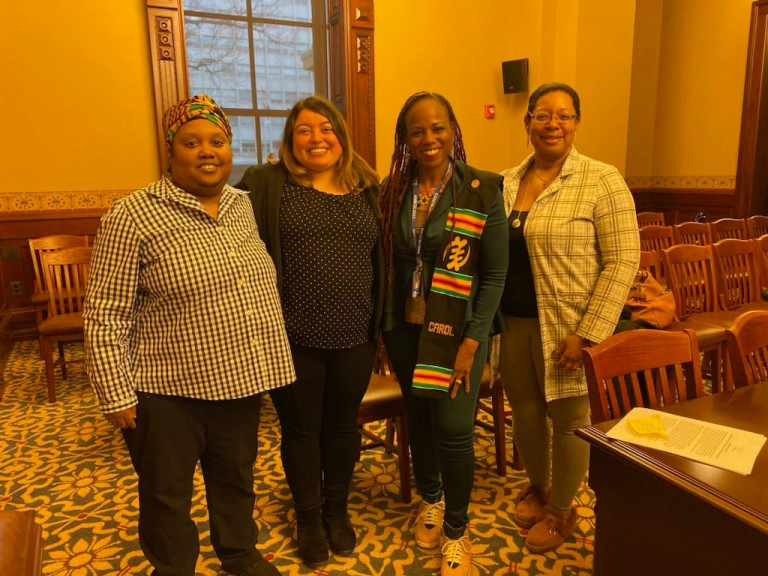Black residents in Illinois who are descendants of slaves may soon have access to free DNA testing.
Rep. Carol Ammons (D-Urbana) proposed a House Resolution urging support for the Family Roots Genealogy Program pilot, which aims to reconnect African Americans to their ancestral roots. The program is in partnership with the Department of Anthropology at University of Illinois at Urbana-Champaign and the Carl Woese Institute for Genomic Biology.
Ammons says she noticed the need for this program when she and her husband, County Clerk Aaron Ammons, were doing their own DNA testing and found that the process costs hundreds of dollars from commercial vendors. She said it took paying more than $700 for her husband to get substantial information about his ancestry, which revealed that he had a long lost sister and nephew.
“We felt and believe that it is inappropriate for the descendants of those who were enslaved in the Americas or anywhere else in the world to have to pay a commercial vendor to find out where they come from,” she said.
LaKisha David, the program’s principal investigator and assistant professor in the Department of Anthropology, explained that she was excited to help with the program because of her experiences tracing her ancestry as well.
David said she was asked to pay more than $300 to find out more about where her early ancestors came from and to get in touch with potential relatives. After several ancestry DNA tests, she was able to locate some of her relatives in Cameroon and Ghana, which she described as healing.
David said she was moved to use her knowledge of genomics to help other Illinoisans through the Family Roots Genealogy program.
“As a researcher, I know firsthand the psychological impact that this has on people, and I always wanted to do research that had a real impact on community members, on the people who participate in this research,” she said.
According to Ammons, members of the House Committee and the Champaign-Urbana community have already expressed their support for the bill.
“We have gotten significant support from other members of the general assembly for the pilot because there is no such thing like this in the United States,” she said.
The resolution received a 7-to-4 vote in committee. Ammons said she expects the resolution could be voted on in the House of Representatives in the next few weeks, and that the program could start as soon as this summer.
David said she plans to recruit an estimated 900 participants for DNA testing before the program opens up to all African American Illinois residents.
According to a press release from Ammons’ office, “Participants of the program provide saliva samples to be processed at the university’s biotechnology center, in which the sample will be analyzed by the National Center for Supercomputing, also housed in Champaign-Urbana.”
David explained that once the program is underway, with adequate equipment and funding, the process should only take participants a few minutes.
Both David and Ammons stressed the importance of the program on African Americans who will be able to gain knowledge about their identity and ancestors.
“It is a reconnection that I really can’t put into words,” David said. “It’s an emotion. It’s an experience. It’s a healing… This is reparative work.”
EDITOR’S NOTE: This story has been updated to correct a factual error. The measure introduced in the House of Representatives is a resolution, not a bill, as previously stated.

